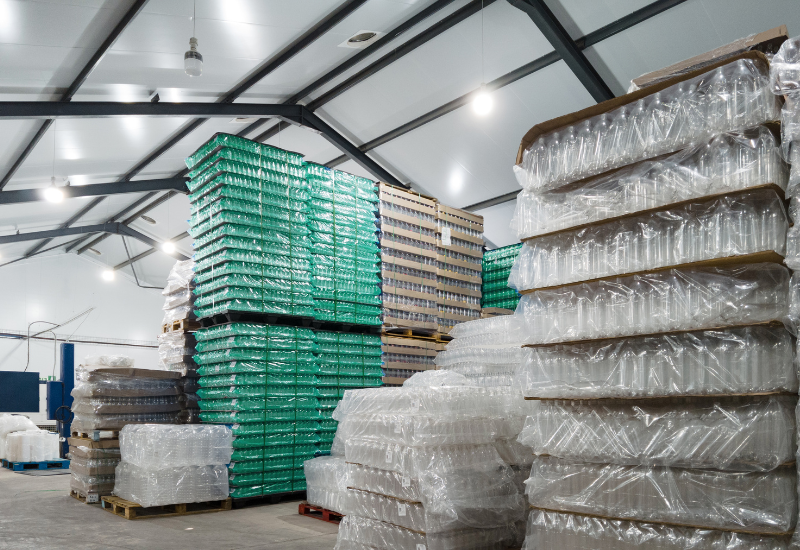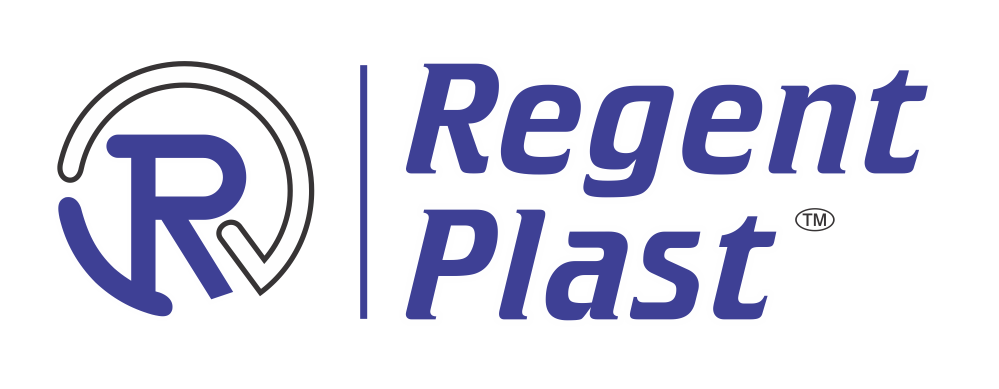Effective storage solutions are essential in the field of transportation and warehousing. The ability to maximize available space while ensuring the safety and integrity of goods is crucial to the success of any operation. In recent years, High-Density Polyethylene (HDPE) containers have gained popularity as an excellent choice for space-efficient storage. In this blog, we’ll explore the benefits of using HDPE containers for warehousing and logistics, highlighting their versatility, durability, and eco-friendliness.
Understanding What is HDPE Containers?
HDPE, short for High-Density Polyethylene, is a versatile thermoplastic known for its strength, durability, and resistance to various environmental factors. In recent years, HDPE containers have gained popularity in the warehousing and logistics industry for several reasons.
Durability
One of the key advantages of HDPE containers is their exceptional durability. They can withstand rough handling, stacking, and the rigors of the logistics industry without sustaining damage. Whether you’re storing heavy machinery parts or delicate electronic components, HDPE containers offer the peace of mind that your items will remain protected.
Versatility
HDPE containers come in a wide range of sizes and configurations, making them highly versatile for various storage needs. From small bins for organizing small parts to large, heavy-duty pallet containers for bulk storage, HDPE containers can be tailored to fit your specific requirements. This versatility ensures that you can optimize your storage space effectively.
Eco-Friendliness
As the world becomes increasingly conscious of environmental issues, sustainability in warehousing and logistics has become a top priority. HDPE containers are eco-friendly as they are recyclable and can be reused numerous times. Additionally, they are manufactured using minimal resources and energy, making them a responsible choice for businesses looking to reduce their environmental footprint.
Benefits of HDPE Containers in Warehousing and Logistics
Let’s delve deeper into the benefits of using HDPE containers in the context of warehousing and logistics.
1. Space Optimization: Space efficiency is a critical consideration in warehousing and logistics. HDPE containers – especially square or rectangle shapes, with their stackable and nestable designs, allow for efficient space utilization. When not in use, they can be nested inside one another, minimizing the space required for storage. On the other hand, when filled with goods, they can be easily stacked on top of each other, effectively utilizing vertical storage space. This feature is especially valuable in warehouses where every square foot counts.
2. Improved Organization: HDPE containers offer excellent organization possibilities. They come in various shapes, sizes, and with dividers or partitions. This means that you can neatly separate different products, preventing damage and making inventory management more efficient. Organized storage translates into quicker retrieval times and fewer handling errors, improving overall logistics operations.
3. Product Protection: Protecting goods during storage and transportation is a top priority for any logistics operation. HDPE containers are designed to withstand impacts and protect their contents from environmental factors like dust, moisture, and temperature fluctuations. This ensures that your products arrive at their destination in the same condition they left your warehouse, reducing the risk of damage and costly returns.
4. Hygienic Storage: In industries where cleanliness and hygiene are paramount, such as food and pharmaceuticals, HDPE containers are an excellent choice. They are easy to clean, resistant to chemicals, and do not absorb odours or contaminants. This ensures that stored items remain free from contamination, meeting stringent quality control standards.

5. Reduced Maintenance Costs: HDPE containers require minimal maintenance, and their longevity means fewer replacements are needed. This results in cost savings over time, as you won’t have to constantly invest in new containers. Additionally, their resistance to wear and tear reduces the need for repairs and refurbishments.
6. Employee Safety: Handling and moving containers in a fast-paced warehouse environment can pose safety risks to employees. HDPE containers are designed with safety in mind, featuring ergonomic handles and smooth edges to reduce the risk of injury. Moreover, their stackability makes them easy to transport using forklifts and pallet jacks, minimizing the physical strain on workers.
7. Sustainability: The growing emphasis on sustainability has made HDPE containers an attractive choice for environmentally-conscious businesses. Since HDPE is recyclable, it can be part of a closed-loop system where containers are reused and recycled, reducing the demand for new plastic production. Additionally, the energy and resource-efficient manufacturing process contributes to a reduced carbon footprint. The Indian government have mandated to use recycled plastics in rigid packaging from 2025, under the Plastic Waste Management Act.
Real-World Applications
The advantages of HDPE containers are not just theoretical; they find application in various industries within warehousing and logistics.
1. Automotive Industry: In the automotive industry, HDPE containers are used to store and transport various parts and components. Their durability ensures the safety of critical components, while their stackability optimizes space in busy automotive warehouses.
2. Retail and E-commerce: Retailers and e-commerce companies benefit from the versatility of HDPE containers. They use them for storing and transporting products, keeping inventory organized and making order fulfilment more efficient.
3. Healthcare and Pharmaceuticals: In healthcare and pharmaceuticals, where hygiene and safety are paramount, HDPE containers are crucial. They ensure that medical supplies, drugs, and equipment remain protected and uncontaminated.
4. Agriculture: In the agricultural sector, HDPE containers are utilized for storing and transporting crops and other agricultural products. They are particularly suitable for protecting produce from adverse weather conditions and pests.
5. Food and Beverage: The food and beverage industry relies on HDPE containers to store ingredients, finished products, and packaging materials. The hygienic properties of HDPE are a perfect fit for this sector.
Choosing the Right HDPE Container
Selecting the appropriate HDPE container for your warehousing and logistics needs is essential. Here are some key considerations:
1. Size and Configuration: Determine the size and configuration that best suits your needs. Smaller bins are great for organizing smaller items, while larger pallet containers are ideal for bulk storage.
2. Weight Capacity: Consider the weight capacity of the containers. Ensure they can handle the heaviest items you intend to store or transport.
3. Hygiene Requirements: If you are in an industry with strict hygiene requirements, prioritize containers that are easy to clean and do not absorb contaminants.
4. Environmental Impact: Consider the environmental impact of your choice. Opt for containers made from recycled or recyclable materials to support sustainability.
Conclusion
HDPE containers have revolutionized the way warehousing and logistics operate. Their durability, versatility, space efficiency, and eco-friendliness make them a standout choice for businesses seeking to optimize their storage solutions. As the logistics industry continues to evolve, these containers will undoubtedly play a pivotal role in enhancing operational efficiency, reducing costs, and promoting sustainability.
In an era where efficient use of space, product protection, and sustainability are paramount, HDPE containers have proven themselves to be a valuable asset for businesses of all sizes. Whether you’re managing a bustling warehouse, ensuring the timely delivery of goods, or striving for a greener future, HDPE containers offer a versatile and reliable solution. With their numerous advantages, they are set to remain a staple in the ever-evolving world of warehousing and logistics.
Resources Available: Choosing the Best Rigid Plastic Packaging: A Simple Guide

